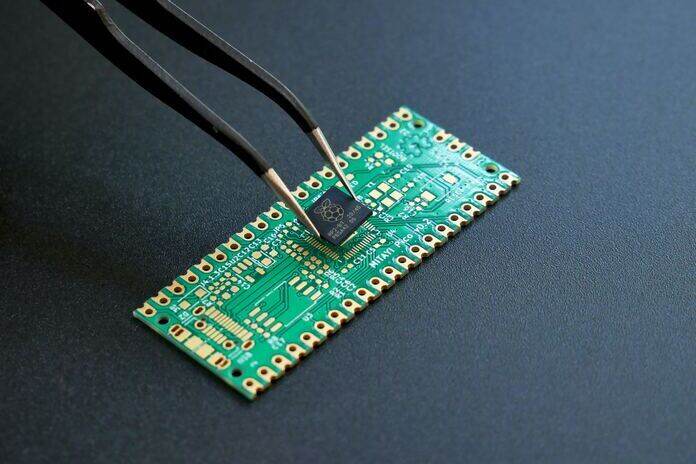Advanced Micro Devices (NASDAQ:AMD) has recently expanded its fourth-generation EPYC CPU portfolio with the introduction of the 8004 series processors. These processors are based on the Zen 4c core architecture and utilize a new SP6 socket.
The EPYC 8004 series processors offer significant improvements in performance and energy efficiency compared to the competition. They can provide up to two times better SPEC power performance per system watt, making them highly efficient choices for various workloads.
One of the key benefits of AMD’s EPYC 8004 series processors is their balanced performance and energy efficiency, which is particularly important for edge computing. For example, the EPYC 8534P processor delivers up to 2.4 times the aggregate frames per hour per system watt in video encoding workloads compared to the nearest competition. In IoT Edge gateway workloads, an eight-core EPYC 8024P-powered server can achieve approximately 1.8 times the total throughput performance per 8kW rack compared to the nearest competition.
AMD’s expanding partner base, including companies like Dell Technologies, Microsoft, Amazon Web Services (AWS), Alibaba, and Oracle, is helping drive the adoption of its EPYC CPUs. Cloud providers such as Microsoft, AWS, Alibaba, and Oracle have deployed Genoa-based solutions in their data centers.
AMD’s EPYC CPUs are also contributing to greater data center consolidation, with their impressive performance making them suitable for various workloads. Additionally, AMD’s Pensando DPUs (Data Processing Units) are being used to offload infrastructure services from CPUs, improving overall data center efficiency.
Dell, for example, is leveraging AMD EPYC fourth-generation CPUs in its PowerEdge C6615 server, offering cloud service providers intelligent monitoring capabilities for more efficient compute services.
Microsoft’s cloud arm, Azure, has introduced the first Genoa-X HPC (High-Performance Computing) instances, providing significantly higher performance in technical computing workloads compared to previous generations.
The availability of AMD’s Bergamo CPUs is also expected to boost the company’s prospects, as server providers like Dell, HPE, Lenovo, and Supermicro plan to launch new platforms based on Bergamo in the third quarter.
Overall, AMD’s expanding portfolio of EPYC CPUs and its partnerships with major players in the industry are positioning the company for growth. AMD anticipates third-quarter 2023 revenues of $5.7 billion (+/-$300 million), reflecting year-over-year and sequential growth of 2.5% and 6.5%, respectively.
Featured Image: Unsplash









